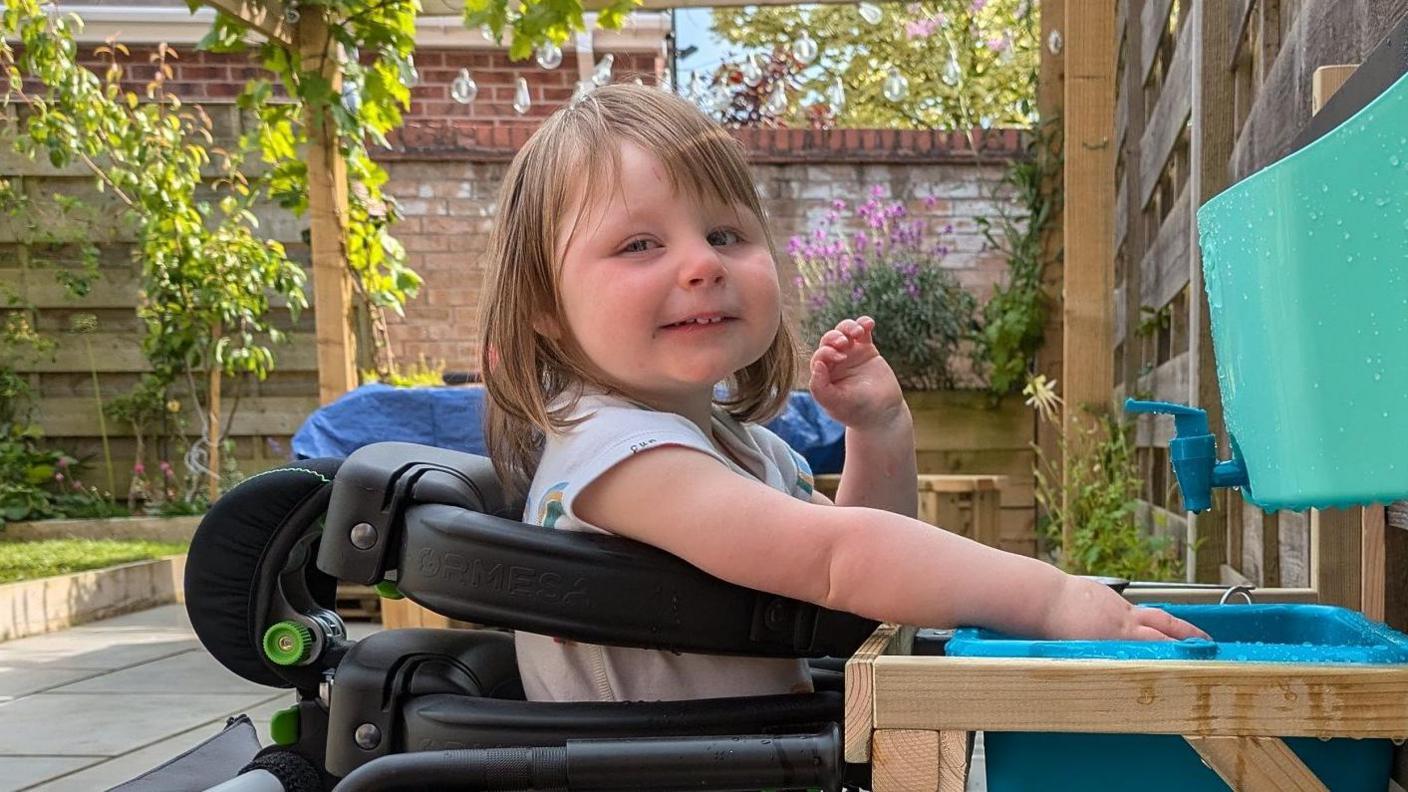Girl, 4, with rare blood disorder finds donor
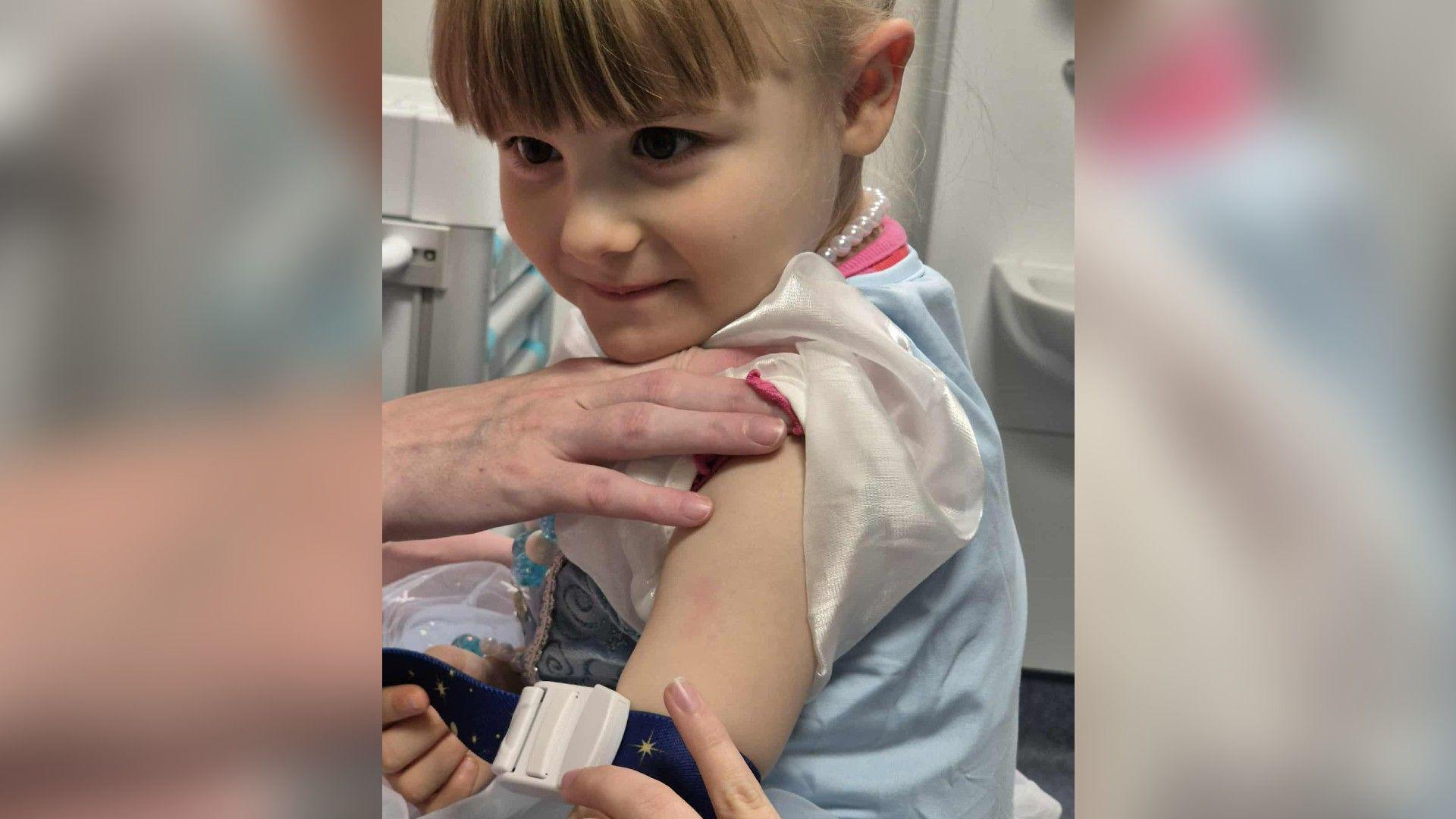
Freya Dixon was diagnosed with the rare disorder when she was 10 months old
- Published
A four-year-old girl with a rare form of anaemia that means she needs a blood transfusion every three weeks has been matched with a bone marrow donor.
Freya Dixon, from Bingley, was diagnosed with Diamond-Blackfan anaemia (DBA) when she was a baby, a condition where bone marrow fails to produce enough red blood cells and leads to paleness and fatigue.
She has already endured 73 blood transfusions, each taking between five and 12 hours, and has had to miss her first year of school.
But now a 20-year-old man from Germany has donated his bone marrow which means, if successfully transplanted, Freya may never need another transfusion.
The procedure, which involves Freya undergoing chemotherapy to make room for the new cells, is scheduled for 17 September, and she and her mother Amy are currently in isolation at home to prepare.
Amy, 32, said: "All we know about the donor is that he is a young lad from Germany, but what he is doing is going to have such a profound effect on Freya's life.
"She's given him a nickname though - Duckybaabaa."
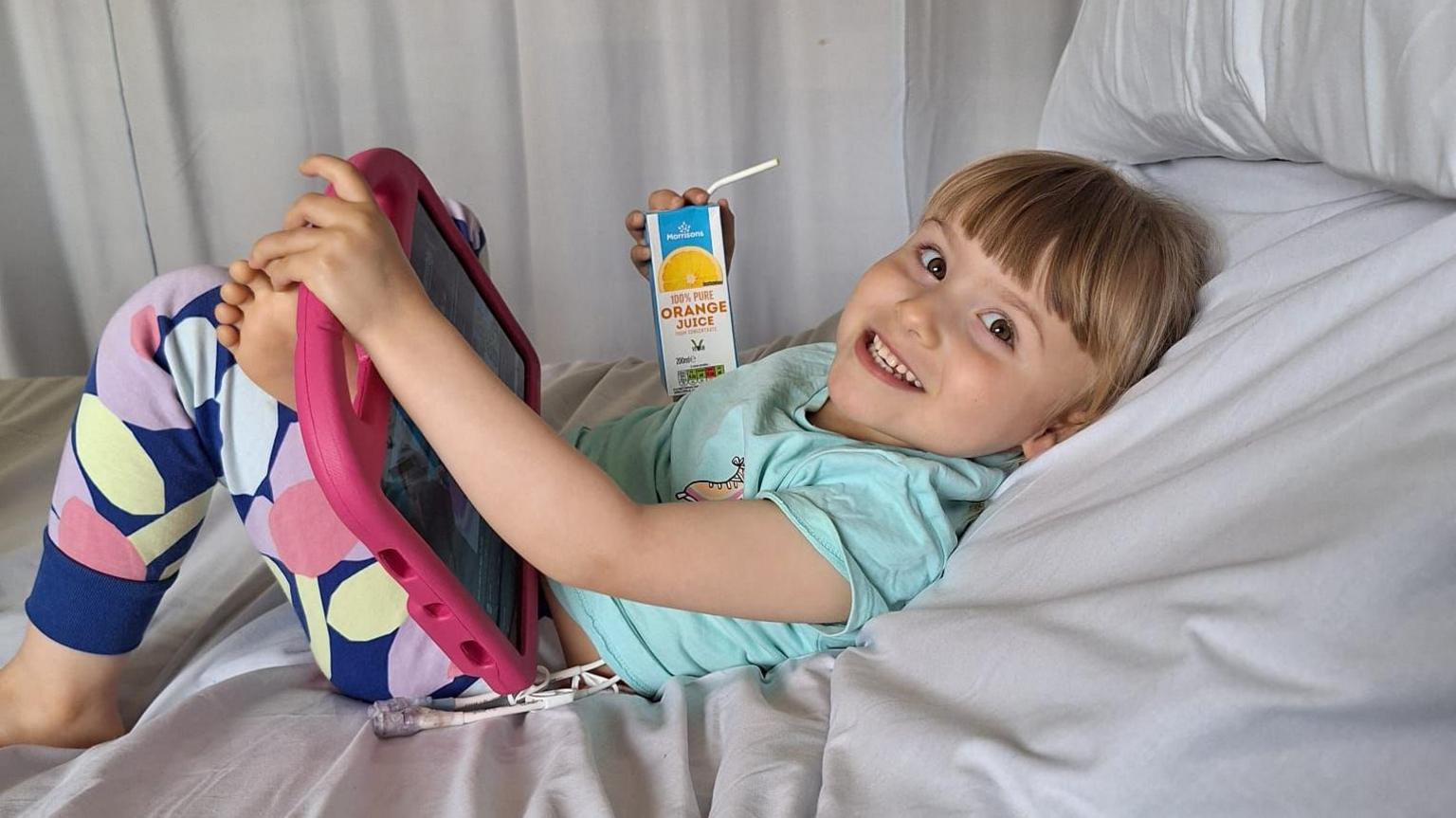
Freya, four, has had 73 blood transfusions so far in her life
After a year of planning and a few donors that fell through, the infusion will only take about 30 minutes at hospital in Leeds but it comes with risks, including if Freya's body rejects the stem cells.
But one of the hardest parts, Amy said, will be the aftercare.
She and Freya will have to stay in complete lockdown at home until Freya's immune system has rebuilt itself, which could take up to a year.
Freya will go and stay with her father on weekends.
"It's like a completely clean slate for her body, so her immune system will be similar to that of a newborn baby's.
"We've had a bit of practice with lockdowns though as she was born during Covid, and we are going to try and keep to a routine as much as possible, with movie hour, home schooling and games," said Amy.
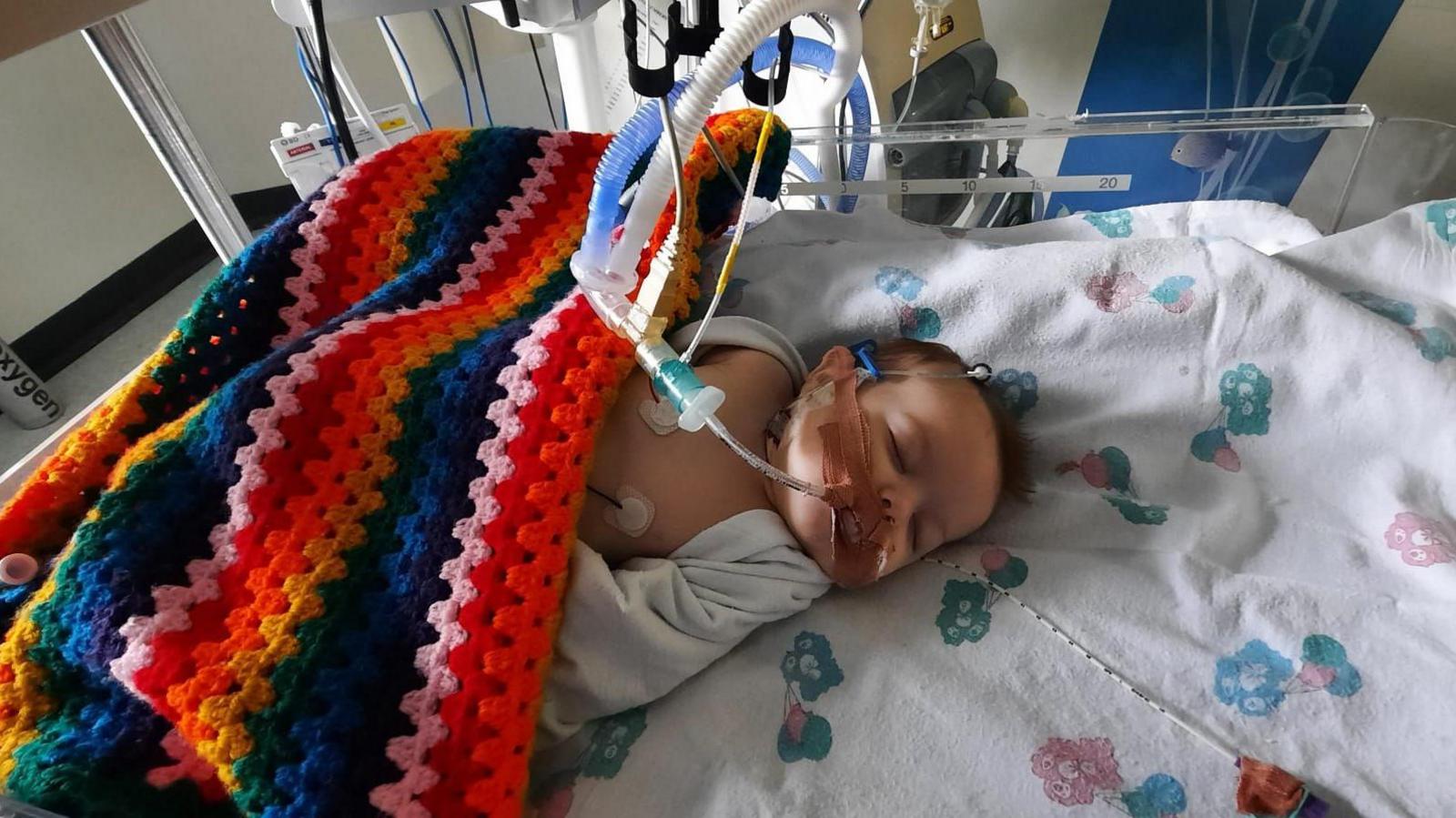
The condition only affects about 125 people in the UK
She added: "But with a four-year-old who wants to put everything in their mouth still, it's really high stress and risky."
Beki James, consultant paediatric haematologist from Leeds Teaching Hospitals, said the experience may feel a bit like being in prison.
"She can't leave the room until we feel her immune system is strong enough.
"But if all goes well. I hope that within a year's time she will be almost indistinguishable from any other little girl."
Diamond-Blackfan anaemia, a lifelong condition, only affects around 125 people in the UK.
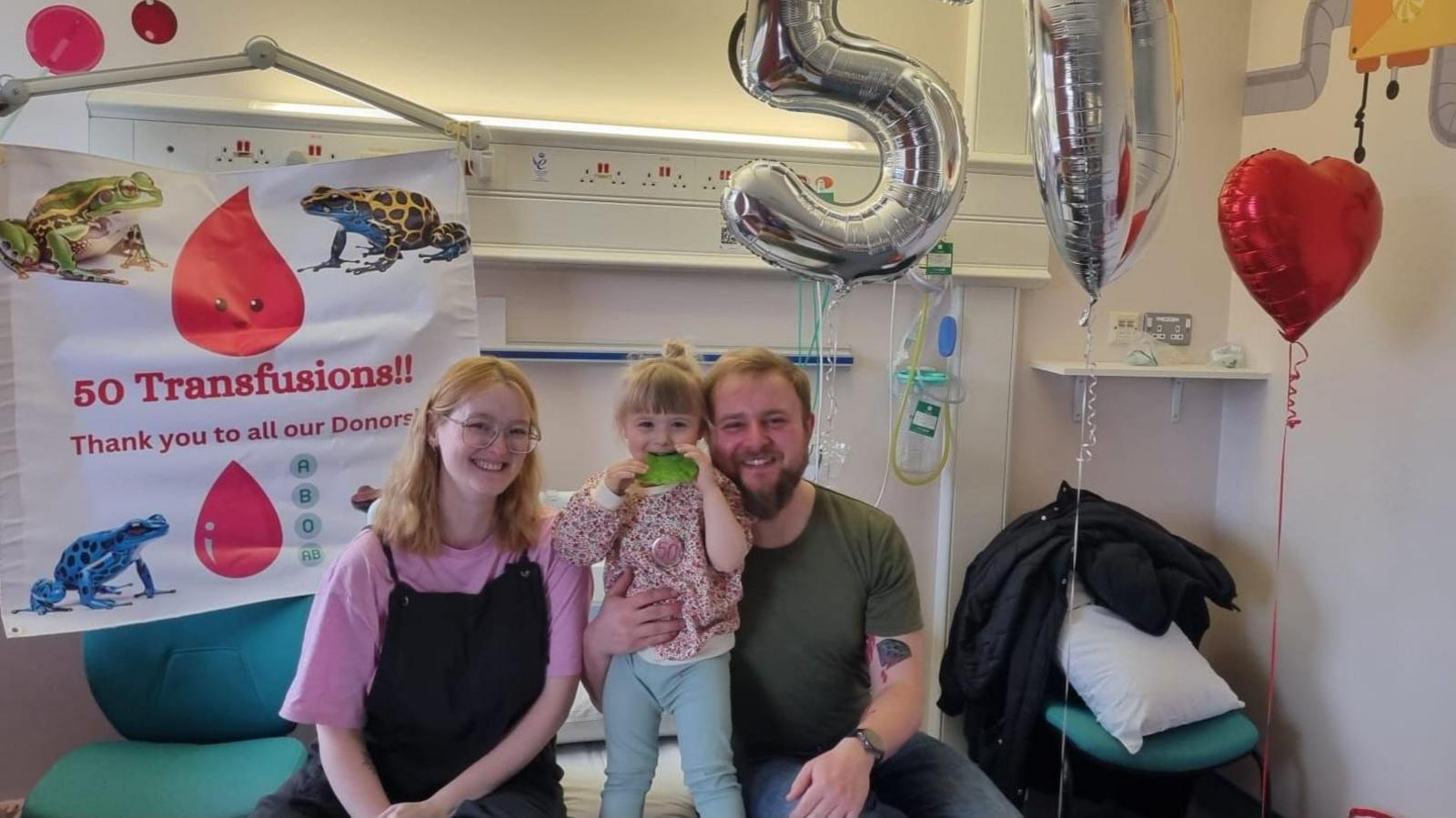
Amy, Freya and father James, 32, marking her 50th blood transfusion
Amy, who is also raising money to take Freya to Disneyland when she is better, said she knew "straightaway" something was not quite right with her daughter after she was born, but it was not until she was 11 weeks old that she became very poorly.
She was finally diagnosed at 10 months.
Amy recalled there was a "period of grieving" for the parenting experience she thought she would have, but she would not "change a single thing" about Freya - including her condition.
The new bone marrow will not cure Freya of Diamond-Blackfan anaemia and she may still face issues later in life with fertility, her hormones and gut, but she will no longer be in and out of hospital and will lead the normal life of a child.
When asked what she hoped for Freya's future, Amy said: "What we're hoping for is that she continues to be the happy, smiley, silly, bright and beautiful Freya she is."
Get in touch
Tell us which stories we should cover in Yorkshire
Listen to highlights from West Yorkshire on BBC Sounds, catch up with the latest episode of Look North.
Related topics
- Published31 August
